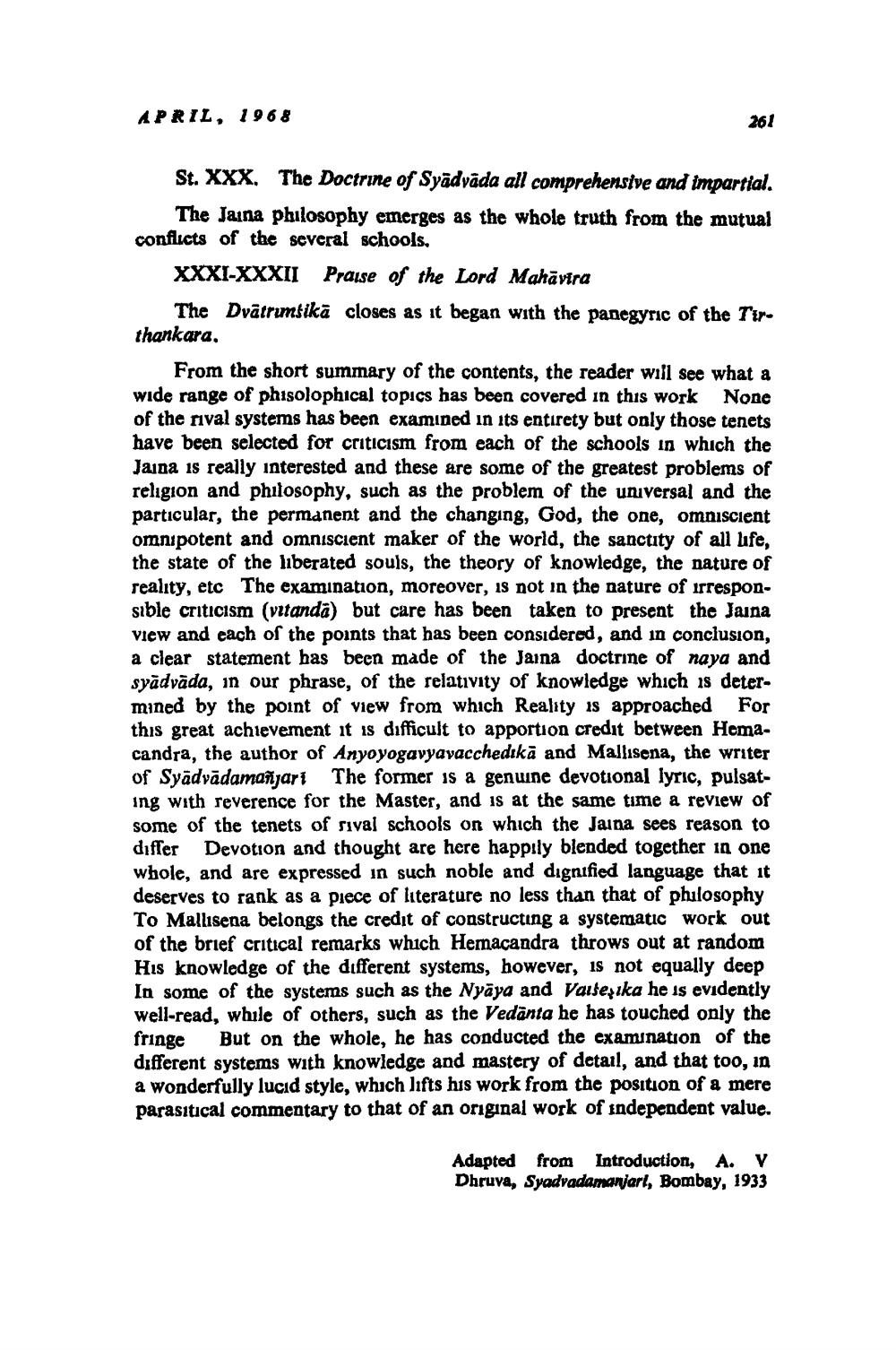________________
APRIL, 1968
261
St. XXX. The Doctrine of Syādvāda all comprehensive and impartial.
The Jaina philosophy emerges as the whole truth from the mutual conflicts of the several schools,
XXXI-XXXII Praise of the Lord Mahavira
The Dvātrumsikā closes as it began with the panegyrıc of the Tir. thankara,
From the short summary of the contents, the reader will see what a wide range of phisolophical topics has been covered in this work None of the rival systems has been examined in its entirety but only those tenets have been selected for criticism from each of the schools in which the Jaina is really interested and these are some of the greatest problems of religion and philosophy, such as the problem of the universal and the particular, the permanent and the changing, God, the one, omniscient omnipotent and omniscient maker of the world, the sanctity of all life, the state of the liberated souls, the theory of knowledge, the nature of reality, etc The examination, moreover, is not in the nature of irresponsible criticism (vztanda) but care has been taken to present the Jaina view and each of the points that has been considered, and in conclusion, a clear statement has been made of the Jaina doctrine of naya and syädvāda, in our phrase, of the relativity of knowledge which is determined by the point of view from which Reality is approached For this great achievement it is difficult to apportion credit between Hemacandra, the author of Anyoyogavyavacchedıkā and Mallisena, the writer of Syādvādamañjari The former is a genuine devotional lyric, pulsating with reverence for the Master, and is at the same time a review of some of the tenets of sival schools on which the Jaina sees reason to differ Devotion and thought are here happily blended together in one whole, and are expressed in such noble and dignified language that it deserves to rank as a piece of literature no less than that of philosophy To Mallisena belongs the credit of constructing a systematic work out of the brief critical remarks which Hemacandra throws out at random His knowledge of the different systems, however, is not equally deep In some of the systems such as the Nyāya and Vaitezika he is evidently well-read, while of others, such as the Vedānta he has touched only the fringe But on the whole, he has conducted the examination of the different systems with knowledge and mastery of detail, and that too, in a wonderfully lucid style, which lifts his work from the position of a mere parasitical commentary to that of an original work of independent value.
Adapted from Introduction, A. V Dhruva, Syadvadamanjarl, Bombay, 1933




